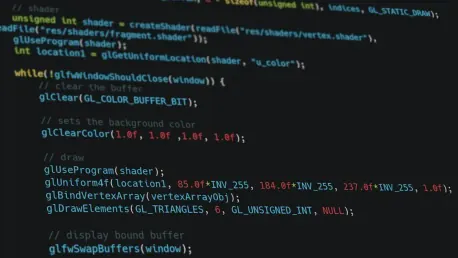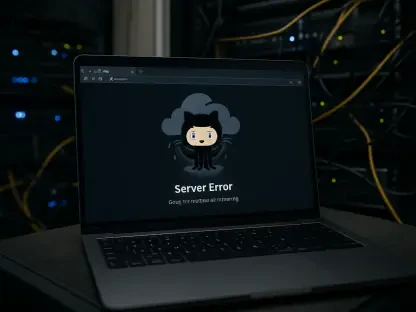The creator of C++, Bjarne Stroustrup, has called upon the programming community to defend the language against growing criticism over its memory safety issues. With the increasing focus on safer programming practices, C++ faces scrutiny for its manual memory management, which has led to vulnerabilities in large codebases. As the software development landscape evolves, the challenges associated with C++’s approach to memory management have become more prominent. These vulnerabilities not only compromise software security but also push the programming community to reassess the language’s place in modern development environments.
Mounting Criticism and Industry Shift
C++ has recently come under intense scrutiny for its memory safety shortcomings, primarily due to its reliance on manual memory management. Developers often encounter memory-related errors such as out-of-bounds reads and writes, buffer overflows, and use-after-free vulnerabilities, which can lead to significant security breaches. These issues have become a focal point in discussions among cybersecurity experts and industry leaders, who argue that C++’s architecture makes it inherently prone to such problems. The manual nature of memory management in C++ requires a high level of vigilance from developers, increasing the likelihood of human error and potential security flaws.
In response to these growing concerns, both industry and government cybersecurity experts have advocated for a shift away from using C and C++ in favor of languages with better built-in memory safety. Notable examples include Rust, Go, C#, Java, Swift, Python, and JavaScript, which are designed with strong memory safety features that automatically manage memory allocation and deallocation. This paradigm shift aims to minimize the risk of memory-related vulnerabilities and enhance the overall security of software systems. The industry’s increasing preference for these safer alternatives underscores the urgency for the C++ community to address its memory safety deficiencies effectively and visibly.
Community’s Response and Solutions
The C++ community has not been idle in the face of growing criticism over the language’s memory safety issues. In recent years, several solutions have been proposed to enhance memory safety within C++ without sacrificing its strengths, such as performance and control over system resources. Notable initiatives include TrapC, FilC, Mini-C, and Safe C++, each designed to address the core issues contributing to memory safety concerns. These solutions leverage various techniques, including static analysis, automated memory management, and enhanced compiler checks, to mitigate common memory errors and improve overall code safety.
Bjarne Stroustrup has emphasized the need for a significant and visible response from the C++ community to counter the rising preference for Rust and other memory-safe languages. He argues that presenting a strong public narrative showcasing C++’s advancements in memory safety is crucial to maintaining the language’s relevance in modern software development. Stroustrup believes that by demonstrating the effectiveness of these proposed solutions, the community can dispel misconceptions about C++’s suitability for developing secure and reliable software. Such efforts are essential to restoring confidence in C++ as a viable and safe choice for a wide range of applications.
Stroustrup’s Call to Action
In light of the growing criticism and industry shift towards memory-safe languages, Bjarne Stroustrup has issued an urgent call to action, urging the C++ community to modernize the language incrementally rather than abandoning it altogether. He contends that an evolutionary approach to improving memory safety within C++ is more practical and effective than a revolutionary one. Stroustrup’s vision involves gradually integrating new memory safety features and best practices into the language while preserving the core principles that have made C++ a powerful tool for systems programming.
One of Stroustrup’s key proposals is the introduction of the Profiles memory safety framework, which aims to enhance type and resource safety within C++. This framework builds on the language’s foundational objectives, providing developers with additional tools to prevent common memory errors. Stroustrup emphasizes that type safety and resource safety have been core objectives of C++ since its inception, and the Profiles framework represents a natural extension of these goals. By adopting this framework and other similar initiatives, the community can strengthen C++’s resilience against memory vulnerabilities and ensure its continued relevance in the evolving software development landscape.
Government and Industry Influence
Governmental bodies, such as the US Cybersecurity and Infrastructure Security Agency (CISA), have also played a significant role in shaping the conversation around memory safety in programming languages. CISA has issued guidance urging manufacturers and developers to transition to memory-safe languages or develop a roadmap to eliminate memory safety vulnerabilities by 2026. This directive poses a credible threat to the future of C++ and other languages that rely on manual memory management. Stroustrup and the C++ community recognize the importance of addressing these concerns to align with governmental expectations and industry best practices.
High-profile industry leaders, including Microsoft’s Mark Russinovich, have echoed similar sentiments, recommending that developers avoid starting new projects in C/C++ in favor of Rust for applications requiring non-garbage-collected languages. These statements have amplified the urgency for the C++ community to address memory safety concerns and present a viable alternative to the industry’s growing preference for Rust. Stroustrup argues that while these recommendations reflect the excitement surrounding new technology, they also underscore the need for C++ to evolve and adopt safer coding practices. The community must act swiftly and decisively to reinforce C++’s position as a secure and reliable programming language.
Diverse Opinions Within the Community
Within the C++ community, there are diverse opinions on the best approach to addressing memory safety concerns. Robin Rowe, leader of the TrapC project, has raised concerns about the practicality and timely standardization of the Profiles framework. He suggests that adhering to strict compiler flags within Profiles might necessitate significant rewrites of existing codebases, potentially hindering its widespread adoption. Rowe highlights that while introducing new safety features is essential, it is equally important to consider the impact on legacy systems and the feasibility of transitioning to new standards without disrupting ongoing projects.
Instead, Rowe proposes the TrapC compiler as an immediate solution to ensure memory safety within C++. The TrapC compiler converts all pointers to Memory Safe Pointers (MSP) that are checked during compilation to prevent buffer overruns and segmentation faults. This approach guarantees consistent memory safety across all compilation units, addressing common vulnerabilities without requiring extensive code rewrites. Rowe argues that other schemes for improving memory safety in C++ do not offer the same level of assurance, noting that even Rust, celebrated for its safety features, has its own set of vulnerabilities and limitations.
Balanced Evolution of C++
David Chisnall, a researcher at the University of Cambridge and SCI Semiconductor, advocates for a balanced, incremental improvement of C and C++ rather than a complete overhaul. He highlights the complexity and risk associated with rewriting billions of lines of code in a language like Rust, suggesting that a gradual transition to memory-safe C++ is more pragmatic. Chisnall believes that adopting safer coding practices incrementally allows developers to mitigate memory safety concerns without the significant disruption that a wholesale language shift would entail. This approach also acknowledges the vast amount of existing C++ code that continues to underpin critical systems and applications.
Chisnall’s perspective aligns with Stroustrup’s call for an evolutionary approach to enhancing C++’s memory safety. By integrating new safety features and best practices over time, the language can evolve to meet modern security standards while retaining its strengths in performance and control. This balanced approach ensures that C++ remains a relevant and valuable tool for developers, capable of addressing contemporary challenges without abandoning its foundational principles. Chisnall’s insights underscore the importance of collaborating within the community to develop practical, effective solutions that enhance C++’s safety and longevity.
The Path Forward
Bjarne Stroustrup, the creator of C++, has urged the programming community to defend the language against increasing criticism regarding its memory safety issues. As the industry shifts its focus toward safer programming practices, C++ is under fire due to its manual memory management, which has resulted in vulnerabilities within extensive codebases. These security flaws have only become more pressing as the software development landscape continues to change. Manual memory management in C++ can lead to security vulnerabilities which not only compromise the integrity of software but also urge the programming community to rethink the language’s role in modern development environments. Stroustrup argues that these challenges highlight the need for a more nuanced understanding and approach to C++. He insists on the importance of educating developers on proper usage and leveraging the language’s strengths while addressing its weaknesses. The ongoing debate mirrors broader questions about balancing performance with safety in contemporary programming.









